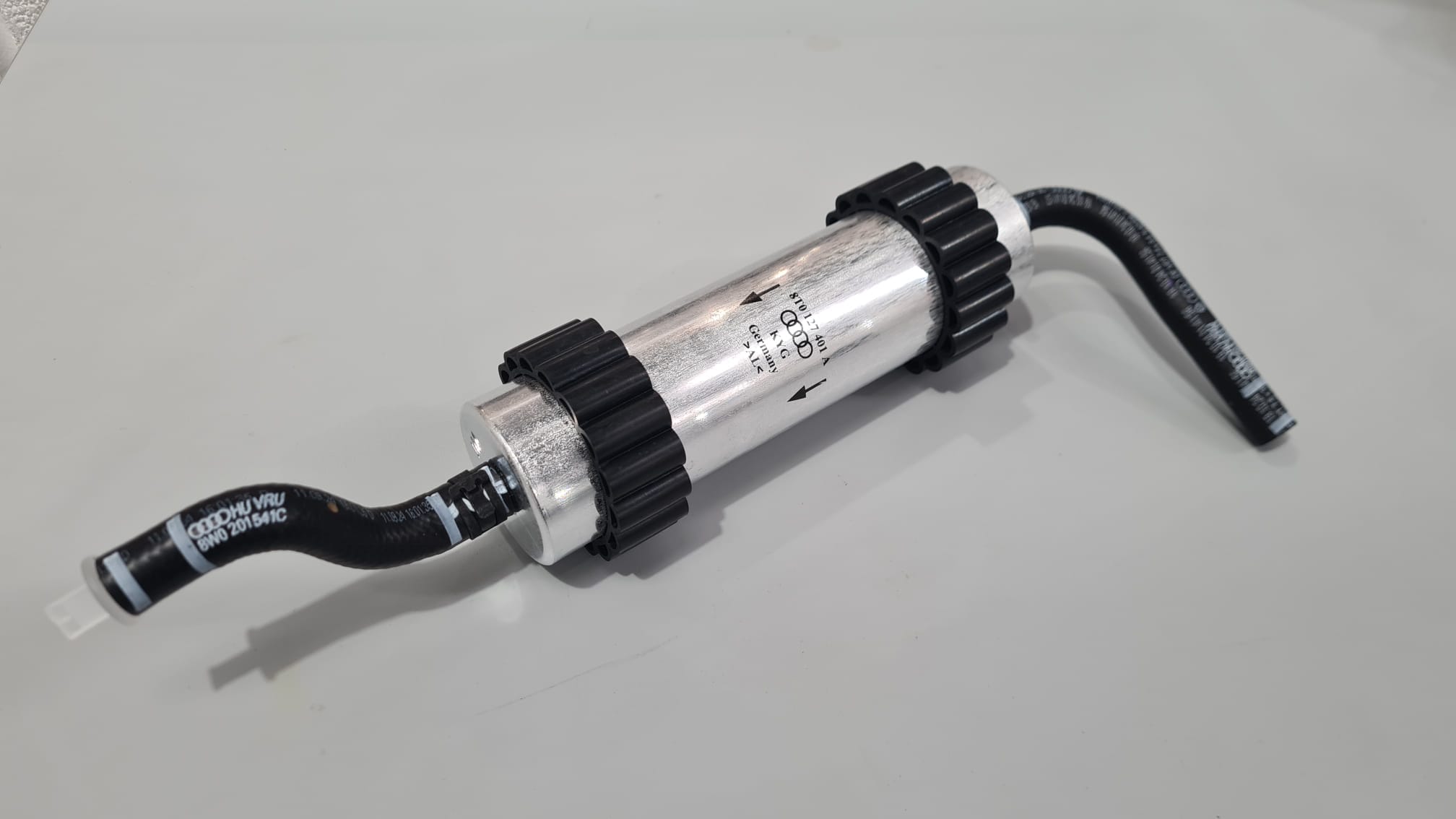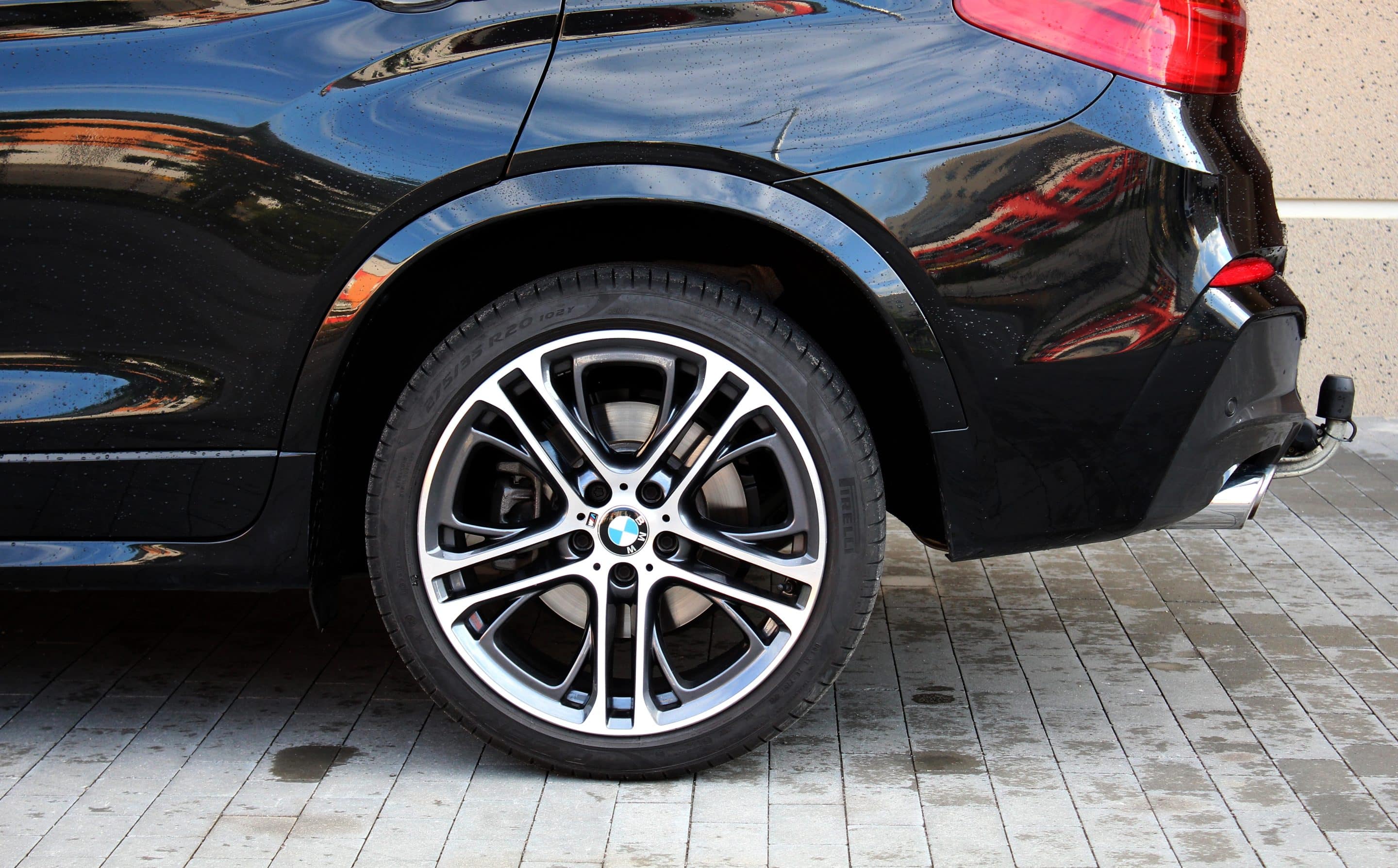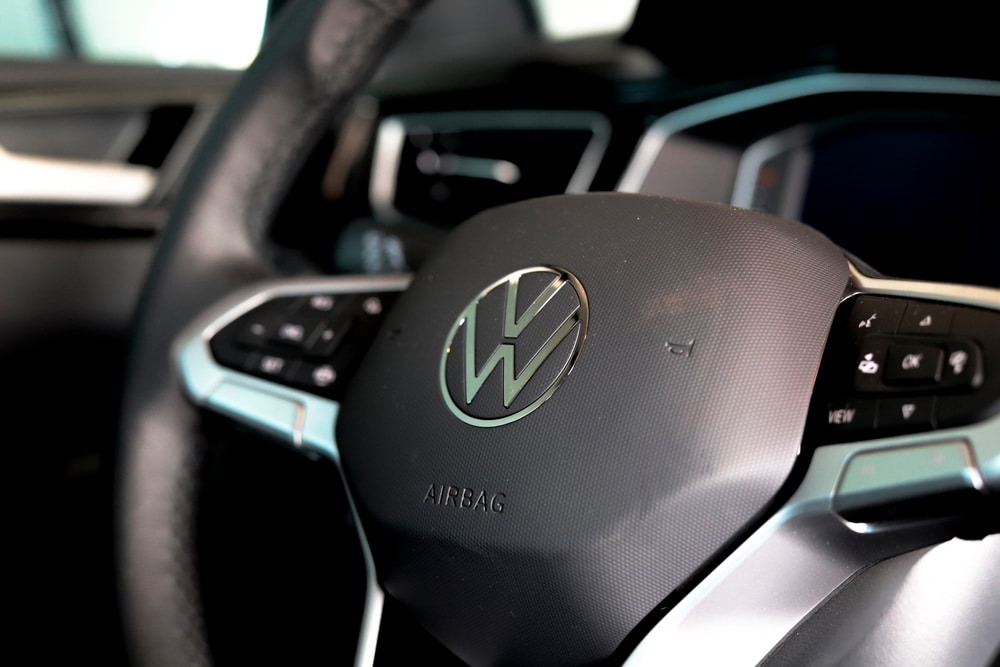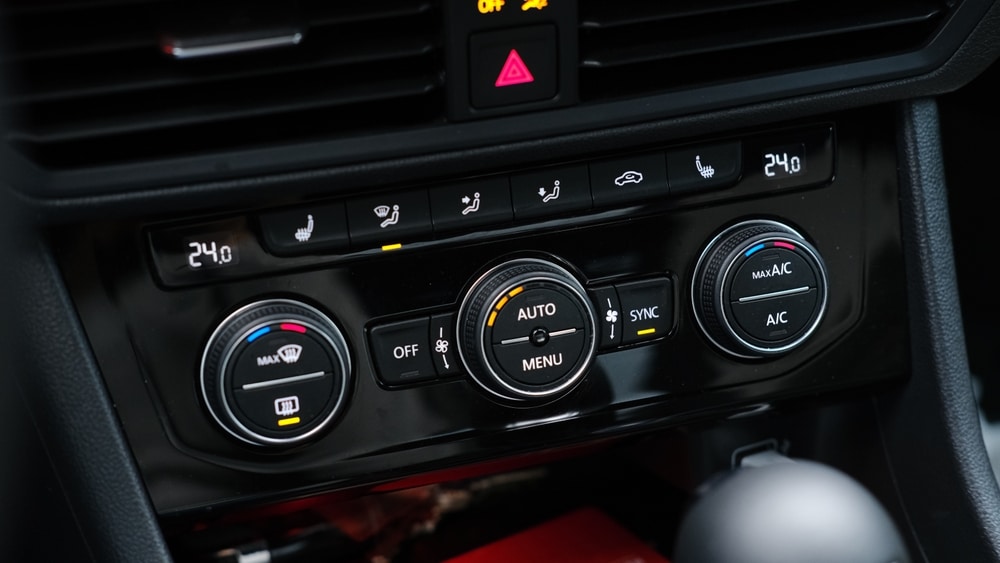Diesel Fuel Filters
Can a part as small as a diesel fuel filter really mean the difference between reliable driving and costly breakdowns?
Your diesel fuel filter shields injectors and the high-pressure pump from contaminants. If neglected, it can cause performance loss and major repair bills.
In this article, we’ll explain where the diesel fuel filter is fitted, its function, the issues that arise when ignored, and why timely replacement is vital.
Wondering if your diesel filter is due for replacement?
Book your service with JDK Automotive, Camberley today on 01276 535585 and let our team keep your vehicle running smoothly.
Diesel fuel filter location explained
In a typical setup, the diesel fuel filter (part 4 in the diagram) is fitted on the low-pressure side of the fuel system, between the fuel tank and the high-pressure pump.

On most modern cars, it is located in the engine bay to make replacement easier during servicing.
Many systems also incorporate a coarse strainer inside the tank, which prevents larger debris from travelling through to the filter.
To understand how the filter works alongside other components, check out our full Diesel Fuel System Guide.
How the diesel fuel filter protects your car
Your diesel fuel filter has two main protective functions:
- Blocking particles: The filter traps fine debris and other impurities present in the diesel before they can travel to critical parts such as the injectors and high-pressure pump. Without this protection, contamination can cause premature wear, poor performance, or even severe system damage.
- Separating water: Traces of water are often found in diesel fuel. Your vehicle’s diesel fuel filter removes this moisture before it travels further through the system, preventing corrosion and avoiding costly damage to pumps and injectors.
Your diesel fuel filter is a crucial safeguard against premature wear and system problems.
Book your diesel filter replacement today with JDK Automotive, Camberley on 01276 535585.
Types of diesel fuel filters explained
Many modern diesel fuel systems rely on a main fine filter (part 4 in the diagram), though the design can differ depending on your vehicle’s make, model and year.
The two most common diesel fuel filter setups are:
- Sealed filter units: These are complete filter assemblies, where the housing and filter media are replaced together. This approach is often found in older vehicles or heavy-duty diesel systems. Some units also include additional features such as integrated water separation or a drain bowl.

- Cartridge modules: This is the standard design for most modern diesels. A fixed plastic or aluminium housing remains in place, containing a pleated, multi-layer filter element that captures particles and removes water. The housing may also be fitted with valves, sensors, or a hand primer. When serviced, only the inner element is replaced.

Diesel systems usually also feature a coarse strainer in the fuel tank (part 2 in the diagram), which provides extra protection by catching larger debris before it can reach the main filter.
Servicing your vehicle on schedule ensures your diesel fuel filter, whichever type it uses, continues to protect the system. It’s really not worth skipping a service; it can end up costing you more money in the long run.
Looking to book your next service? Our experts at JDK Automotive, Camberley can help. Call today on 01276 535585.
Diesel fuel filter faults and their consequences
A failing diesel filter can lead to several technical issues, including:
- Tank strainer blockage: A clogged strainer makes the lift pump work harder, leading to noisy operation and uneven fuel delivery.
- Air entry: If seals are damaged or installed incorrectly, air may enter the low-pressure side of the system, creating hesitation, stalling, or difficult starting.
- Restricted filter element: When the diesel fuel filter is blocked, fuel flow to the high-pressure pump is reduced. This often causes decreased performance, extended cranking, or complete no-start.
- Incorrect installation: A misfitted or unsuitable filter risks fuel leaks, air getting into the system, or unfiltered diesel bypassing the diesel fuel filter.
- Water ingress: When water isn’t separated from the diesel, it can move through your vehicle’s diesel fuel system, corroding injectors and damaging the high-pressure pump.
If you’re not sure when your diesel fuel filter was last replaced, speaking to a professional can help.
Diesel filter replacement intervals explained
Unfortunately, there’s no single replacement mileage for diesel fuel filters. The correct timing is set by the vehicle manufacturer’s servicing schedule (you can often find this information in your vehicle’s handbook).
Here are a few pointers to keep in mind:
- Priming essential: Once the diesel fuel filter has been replaced, your vehicle’s fuel system must be primed adequately with the vehicle’s pumps or a built-in hand primer. If ignored, air can remain trapped, leading to hard starting or damage to the high-pressure pump, which can be costly.
- Water management: Filters fitted with drains or water sensors should be checked during service, and drained if water has collected.
- Correct filter choice: Always use the design recommended for your vehicle. Cheap diesel fuel filters may cause fuel leaks, blockages, or poor water separation.
- Reduced performance over time: ISO testing shows that water separation starts above 95% in a new filter but can fall to around 70% at the end of its service life.
Keeping up with diesel fuel filter replacement is an important part of preventative maintenance. Following the manufacturer’s service schedule helps reduce the risk of fuel system faults and expensive repairs and helps keep your diesel engine performing at its best.
Protecting your diesel system
If you want to keep your diesel car in great condition, timely diesel fuel filter replacement is essential.
Following your vehicle’s service schedule (provided by your manufacturer) reduces the risk of contamination-related failures and helps maintain smooth, reliable performance. Staying ahead with maintenance now helps you avoid more serious repair bills later.
And who doesn’t want that?
Equally as important as regular servicing is choosing the right garage. That’s where JDK Automotive, Camberley comes in.
Why drivers choose JDK Automotive
Drivers in Camberley and the surrounding areas trust our experts because we deliver:
- Technicians trained and experienced in diesel servicing.
- A full 12-month parts and labour guarantee.
- Honest, independent service you can depend on.
We even have a fantastic {{average-rating}}⭐ Google rating from {{review-count}} customers in Camberley, Farnborough and nearby areas.
Wondering when your diesel filter was last replaced?
Call JDK Automotive on 01276 535585 and book your service today.
FAQs: Diesel fuel filters explained
- What does a diesel fuel filter do?
A diesel fuel filter captures fine debris and separates out water before it reaches sensitive components such as the high-pressure pump and injectors. Without this safeguard, particles and moisture can cause corrosion, blockages, or wear, leading to poor performance or expensive repairs. - Where can you find the diesel fuel filter?
The diesel fuel filter is usually located in the low-pressure line, between the fuel tank and the high-pressure pump. Most modern vehicles place it in the engine bay for easier servicing. In addition, many designs also feature a coarse strainer inside the tank, which captures larger debris before it reaches the main diesel filter. - Can a blocked diesel fuel filter damage the high-pressure pump?
Yes. A clogged filter restricts flow to the high-pressure fuel pump, forcing it to work harder. As time passes, this strain may cause early wear or pump failure, which is far more costly than a simple filter replacement. - How often should a diesel fuel filter be replaced?
Service intervals vary depending on the manufacturer, so there isn’t a universal recommended time. The best option is to follow the official servicing schedule for your vehicle to ensure your diesel fuel filter is replaced at the recommended time. - What are the symptoms of a blocked diesel fuel filter?
When a filter is restricted, you may experience loss of power, difficulty starting, hesitation, or even complete stalling. As these issues can be caused by other faults, it’s important to get a professional inspection.



